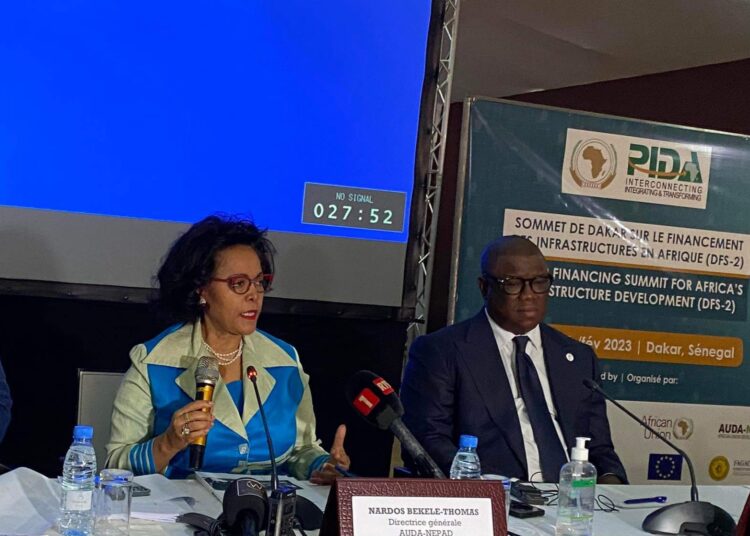The 2nd Dakar Financing Summit for African Infrastructure Development kicked off yesterday in the Senegalese capital of Dakar.
Prime Minister Moustafa Madbouli, the presidents of Rwanda and Togo and the African Union chair attended the event.
The first Dakar Financing Summit was in 2014. This year’s summit is to highlight the ongoing paradigm shift in infrastructure financing and development in Africa.
Speaking to The Egyptian Gazette, CEO of AUDA-NEPAD Nardos Thomas-Bekele said the conference brings together key stakeholders from private and public sectors with the aim to meet Africa’s needs in terms of infrastructure.
“Developing infrastructure is a must to serve people as there’s no life without infrastructure. NEPAD has a clear vision with high ambitions and aspirations and it is time to implement this agenda. This helps ensure security and employment,” she added, noting that the main goal of this summit is to accelerate the implementation of PIDA.
“This is not a dream but reality. It is a summit of implementation, not talk. An action conference. No integration without infrastructure.”
The two-day conference seeks to raise the financing needed to accelerate infrastructure development by highlighting 20 world-class infrastructure projects. These projects aim at boosting socio-economic development and continental trade.
The selected projects deal with energy, transport, water or information and communication technologies (ICT).
AUDA-NEPAD has defined the second priority action plan of the Program for Infrastructure Development in Africa (PIDA PAP 2), in line with the roadmap of the African Union’s Agenda 2063.
PIDA PAP-2, endorsed by the Heads of State of the African Union in February 2021, has identified 69 priority projects for a total investment of $160 billion.
The projects have successfully passed the selection and risk minimisation test of the AUDA-NEPAD Service Delivery Mechanism and have therefore been qualified as feasible and financially sustainable and profitable.
According to NEPAD, the promising projects are to help accelerate Africa’s industrialisation and its regional integration through the creation of corridors.
“Although many partners of the event are already fully engaged, it is crucial to substantially involve the private sector, which is structurally less mobilised on infrastructure development projects in Africa than in other regions of the world,” she said.
In the meantime, the official pointed out that the environmental dimension is part and parcel of PIDA projects.
“Since people are at the centre of these projects, quality and climate change issues are taken into consideration.”






Discussion about this post